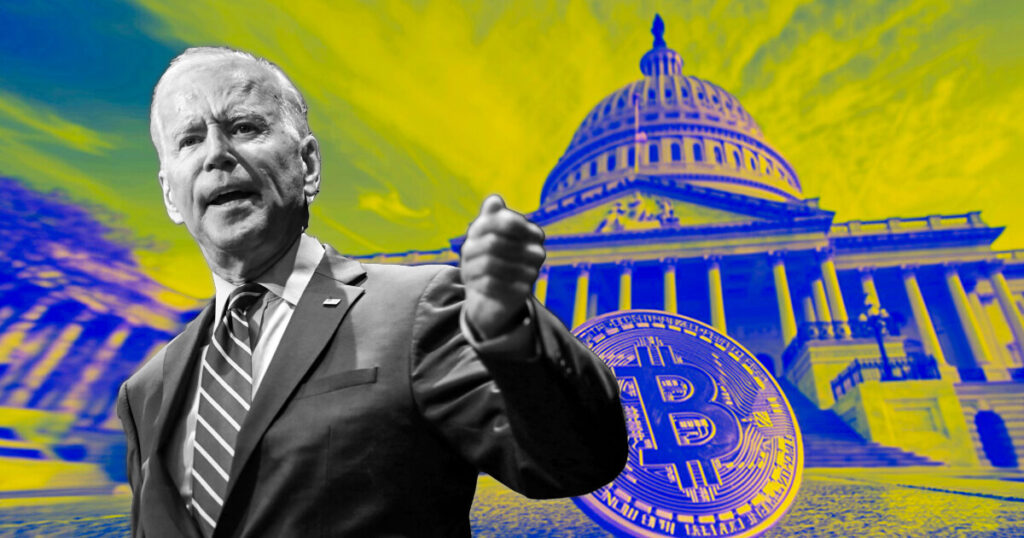Shaping the Future of Cryptocurrency

Over the weekend, Bitcoin Magazine reported that US Congressman Ro Khanna, representing California’s 17th congressional district, is set to host a Bitcoin and blockchain roundtable in Washington, D.C., in early July, according to a private email sent by Khanna’s office and seen by Bitcoin Magazine. Khanna’s office reportedly described the upcoming meeting as “the most significant meeting between policymakers and innovation leaders in blockchain to date.”
Bitcoin Magazine expects the meeting to feature officials from the Biden Administration, House, and Senate, alongside American businessman Mark Cuban, according to the email. The primary objective of this meeting is to strategize on how to “keep Bitcoin and blockchain innovation in the United States.” This initiative is seen as a response to former President Donald Trump’s recent endorsements of the Bitcoin industry. Trump has recently become the first President to accept Bitcoin Lightning payments for campaign donations.
Former President Donald Trump has experienced a dramatic shift in stance towards cryptocurrencies, moving from vocal critic to ardent supporter. In 2019 Trump said,
“I am not a fan of Bitcoin and other Cryptocurrencies, which are not money, and whose value is highly volatile and based on thin air. Unregulated Crypto Assets can facilitate unlawful behavior, including drug trade and other illegal activity….”
The transformation in his approach to Bitcoin was evident in a series of statements made on his Truth Social media platform following a meeting with Bitcoin miners at his Mar-a-Lago estate in Florida. Trump declared, “The choice is clear. President Trump will protect your right to own Bitcoin, to mine Bitcoin, to transact with Bitcoin”. This shift is particularly noteworthy given Trump’s previous stance against Bitcoin during his presidency, where he allegedly wanted to “go after Bitcoin for fraud.”
Trump’s newfound support for Bitcoin and crypto extends beyond political rhetoric. His campaign became the first major presidential campaign to accept donations in crypto, seen as an attempt to attract young, traditionally Democratic voters. Trump has also pledged to end what he describes as President Joe Biden’s “war on crypto” if re-elected.
In contrast, the Biden Administration has taken a notably hostile stance towards the digital assets sector for the past four years. This has included a veto of a repeal of legislation that would have imposed undue burdens on companies looking to custody crypto and could stifle innovation and proposals for tax on electricity used for Bitcoin mining aimed at reducing emissions. However, there are indications of a potential shift in the Biden Administration’s approach to cryptocurrencies. Recent reports suggest that discussions are underway within Biden’s campaign to accept crypto donations through Coinbase Commerce.
The Biden Administration’s stance on crypto appears to be evolving, as indicated by recent developments. This shift can be attributed to several key advancements, including potential SEC approval of spot ether exchange-traded funds (ETFs) and the passing of the Deploying American Blockchains Act of 2023. The SEC’s consideration of approving spot ETH ETFs represents a significant turnaround for an asset class that was previously assumed to be dead on arrival. Additionally, the recent passing of the Deploying American Blockchains Act of 2023 by House representatives marks a modest but important step towards promoting the competitiveness of the United States in the blockchain industry.
If realized, Congressman Khanna’s upcoming roundtable could signify a pivotal moment for the US crypto industry. The roundtable aims to create a collaborative environment to foster growth and innovation by bringing together policymakers and industry leaders. It would also mean both Democrats and Republicans expected nominees had held Bitcoin mining roundtables and may pave the way for a more supportive regulatory landscape in the United States.
Mentioned in this article












